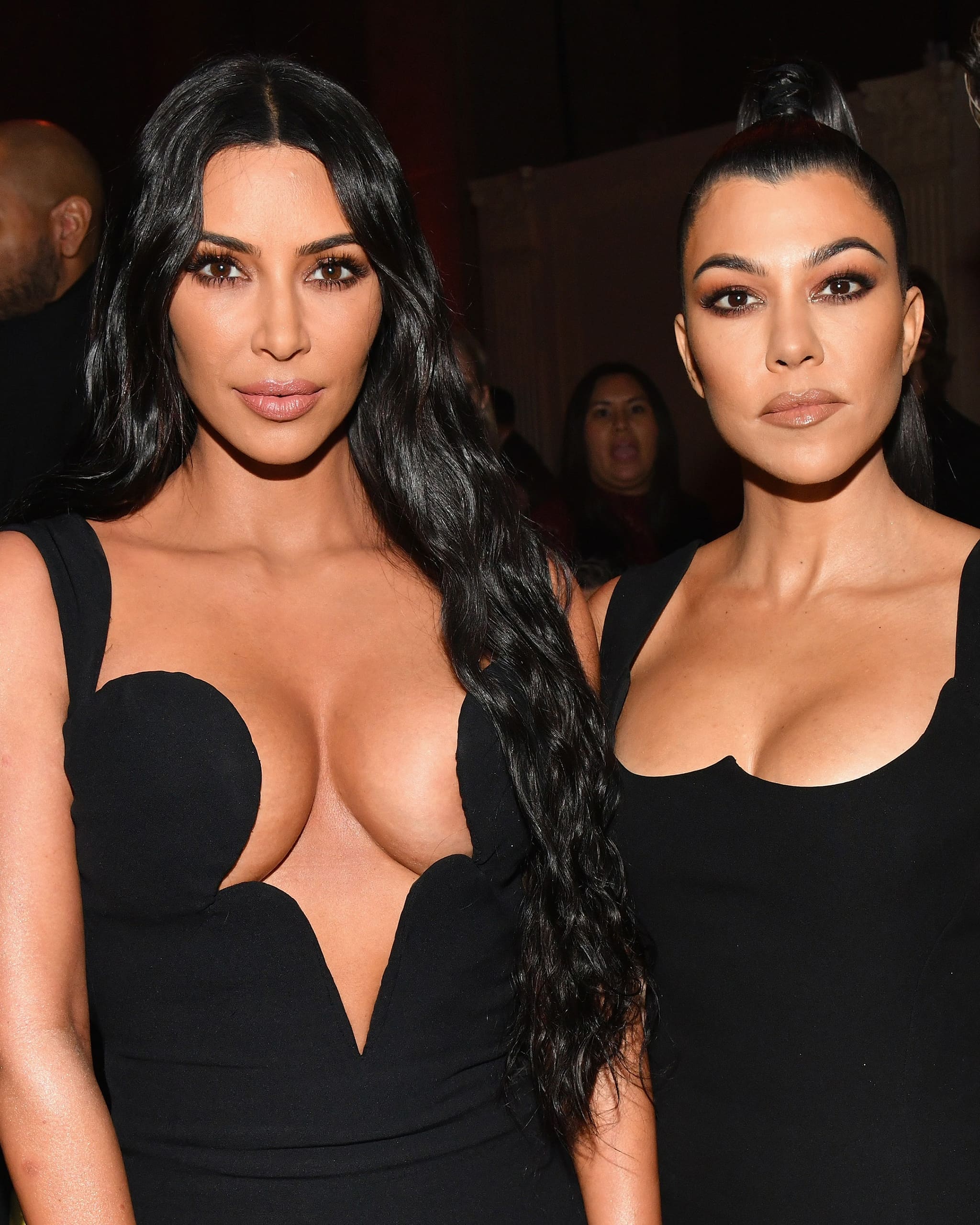Clint Spaulding/amfAR/Getty Images
Part of the Kardashian machine’s enduring appeal is its ability to be simultaneously eerily familiar and distinctly unattainable. We’ve been captivated by the clan’s shenanigans for over 16 years now, in some measure because they often mirror our own experiences.
Watching the raw dynamics of a large, blended family, polished with the glossy sheen of wealth and status makes viewers feel better about their own familial circumstances. Earlier seasons of their new look show The Kardashians drew criticism for skipping over this sort of relatable family drama, so much so that season three has seen a decided return to form.
The series has been anchored around a dispute between Kourtney and Kim, the first and second born respectively, over a partnership with Dolce & Gabbana. Kourtney accused Kim of stripping her of her “wedding vibes” by creative directing a show for the designers just months after her Portofino wedding, which was heavily influenced and hosted by the Italian duo.
Recent episodes saw Kourtney tearfully declaring that “no one has any boundaries” in her family, and accusing Kim of putting a “pay cheque” before their sisterly bond. And while most of us may find the concept of warring over proximity to a couture fashion house rather outlandish, the core sentiment of Kourtney’s frustration resonated with older sisters everywhere.
When Kourtney said, “What else could you take from me, could I have anything that’s mine?” during a confessional, it transported me back to being 14, and learning that my younger sister wanted to take up horse riding after I had so carefully crafted my identity as a bona-fide “horse girl.” At the time it felt like an attack, an encroachment upon my territory and another reminder that my role as an older sister was to share, mentor and prepare.
For me, those feelings of resentment lasted about as long as my sister’s riding career—circa two weeks—but my “oldest child complex” is something I’ve been acutely aware of since the age of four. Years of hearing that I had to “set a good example” for my younger siblings meant my identity became inextricably wrapped up in the responsibility of being a role model in a way that those who’ve never had the same burden won’t understand.
The trepidation and planning of oldest children allows their younger siblings to operate with a degree of carefree nonchalance that we can only dream of. They have the advantage of watching and learning as the firstborns navigate uncharted territory, waiting in the wings to trump their efforts, the un-level playing field often going unnoticed. Add to this the gender specific and competitive dynamics at play between sisters vying for parental approval, and you have a recipe for discontent.
“I think, like, for my survival, I need my own identity, and I just need my own life” Kourtney said in a later confessional, highlighting the all-encompassing nature of older siblinghood. A job you didn’t apply for but from which you can never retire, the role of big sister has a pernicious way of bleeding into all your life choices, imbuing your decisions with a cautious edge all the way into adulthood. Oldest daughters typically leave home later, take on a greater share of domestic labour and play it safe professionally. In comparison, unstrapped by the confines of expectation, younger siblings are rebellious and creative, making them 50 per cent more likely to take the risk of starting their own business.
The impact of the stresses of being a big sister is such that it has been christened “eldest daughter syndrome” by the internet, where firstborn girls have found solace in shared experiences. Yasin Bojang co-founded Home Girls Unite, a support group for eldest daughters from immigrant families, in 2018 to address the condition through social get-togethers, a therapy fund and “rant sessions”. She says: “Many eldest daughters know first-hand how their role infiltrates every area of their lives, including the relationships that they build with their siblings”. After a lifetime of supporting her multiple younger brother and sisters, Yasin is unsurprised that someone in Kourtney’s position would want to keep something as personal as a wedding sacrosanct. “Kourtney may be at a point in her life where she wants to live for herself, which is something her family may not be entirely ready for,” she added.
Kim’s tongue-in-cheek but sharp retort—“Do you think I need your permission?!”—when confronted with the news of Kourtney’s pain over the Dolce & Gabbana deal exemplifies the lack of recognition many older sisters will be used to dealing with. Of course, we don’t own any specific hobby or personality trait—or designer brand for that matter—but a simple admission that we laid the groundwork to introduce you, our younger siblings, to whatever it is would be appreciated. Parental figures, too, should be more willing to concede that it simply isn’t fair that things you once held sacred must be diluted by sharing with siblings. There’s seldom anything they can do about it, but those feelings should be honored all the same.
Life as a firstborn daughter isn’t a prison sentence. The position comes with its perks—studies have shown eldest sisters are 16 per cent more likely to excel academically than their younger siblings, and if Beyoncé, Oprah, and Angela Merkel are anything to go by, the odds don’t look too terrible. But it is true that eldest sisterhood is a thankless task, and unlike parenthood, unchosen. In speaking up about its drawbacks, Kourtney Kardashian may just have unknowingly made millions of women and girls feel finally seen.
This article was originally published on British Vogue.
